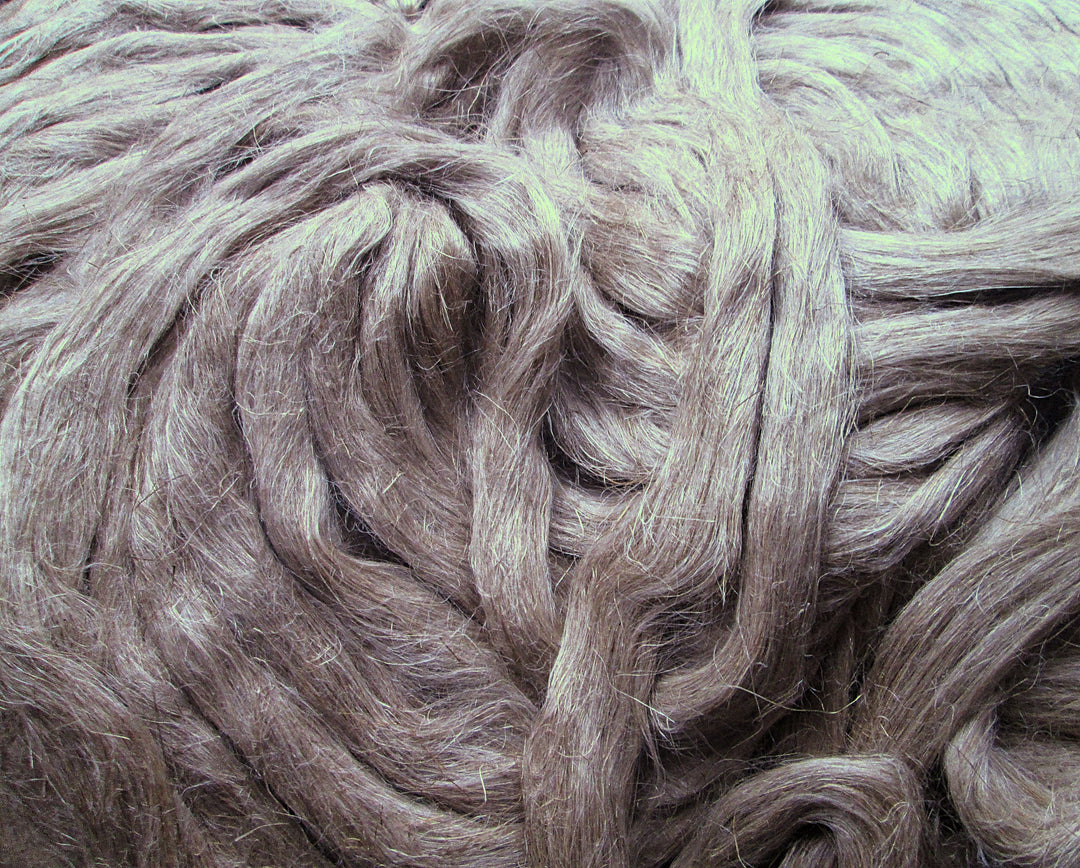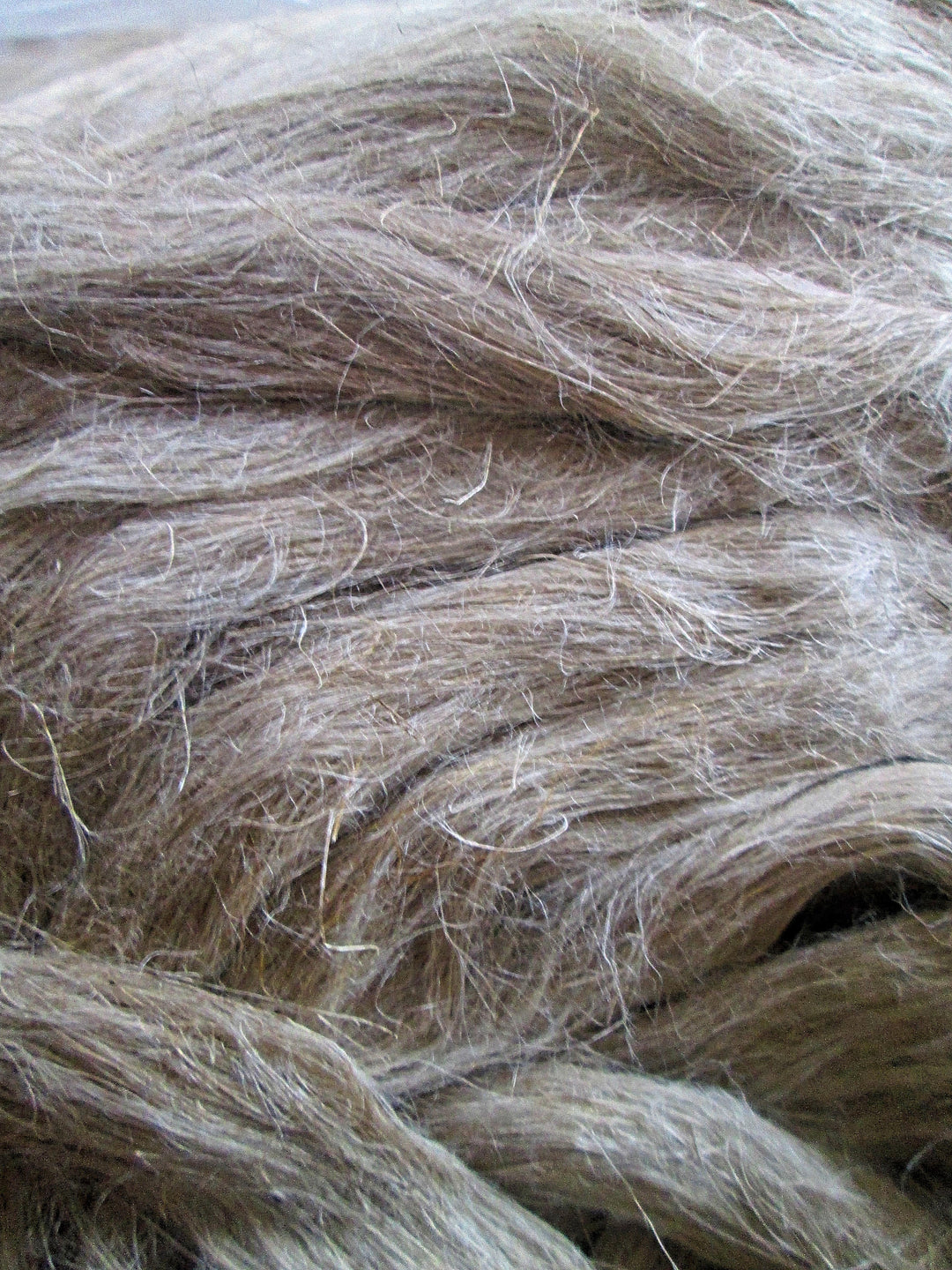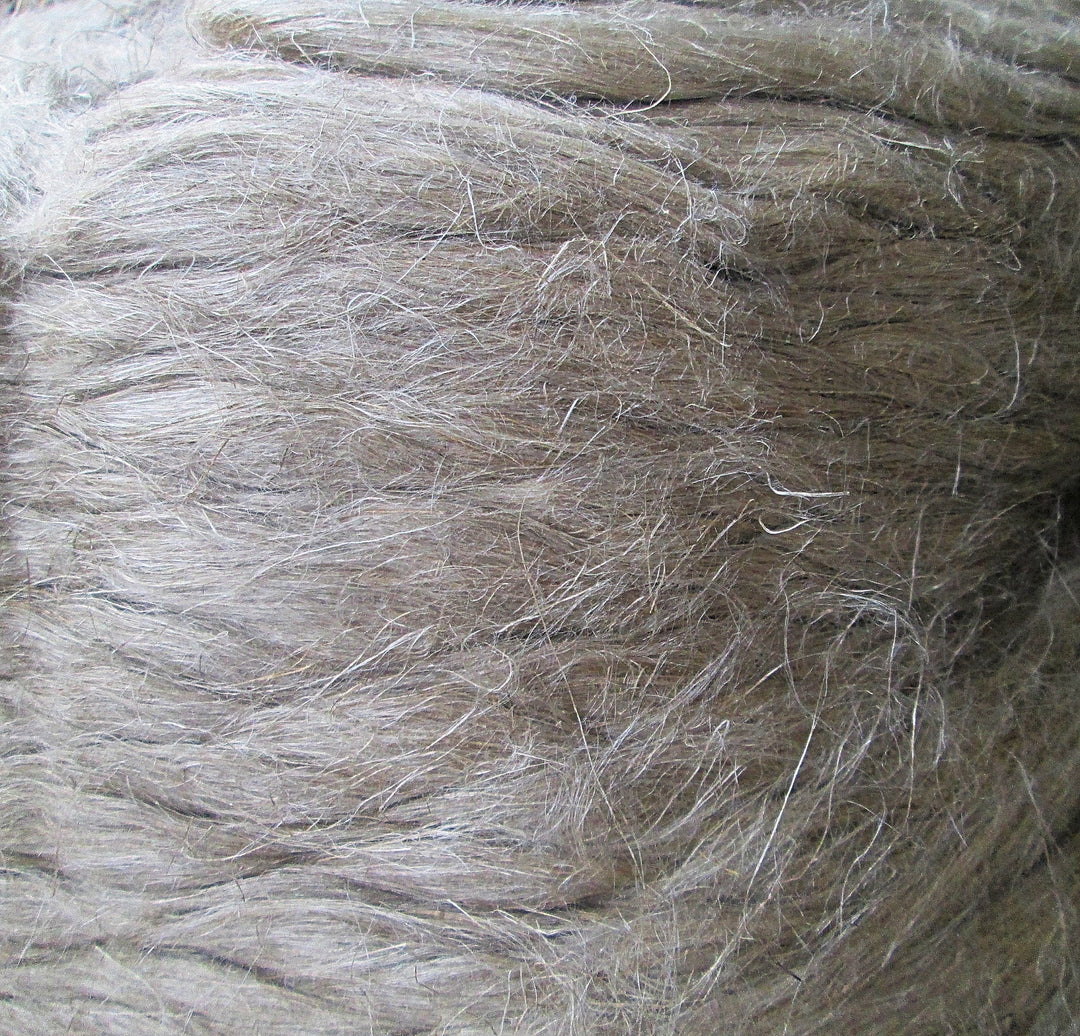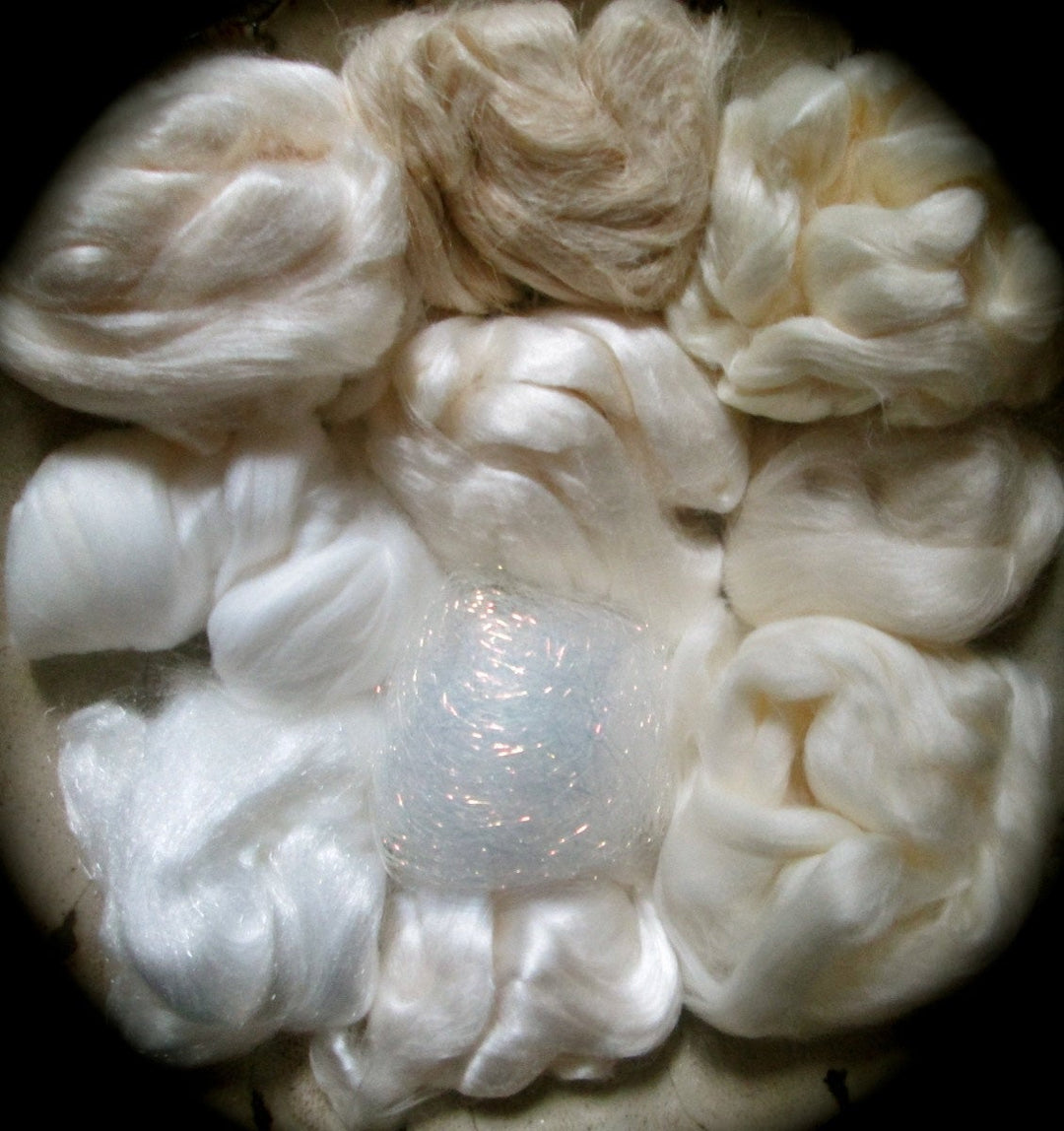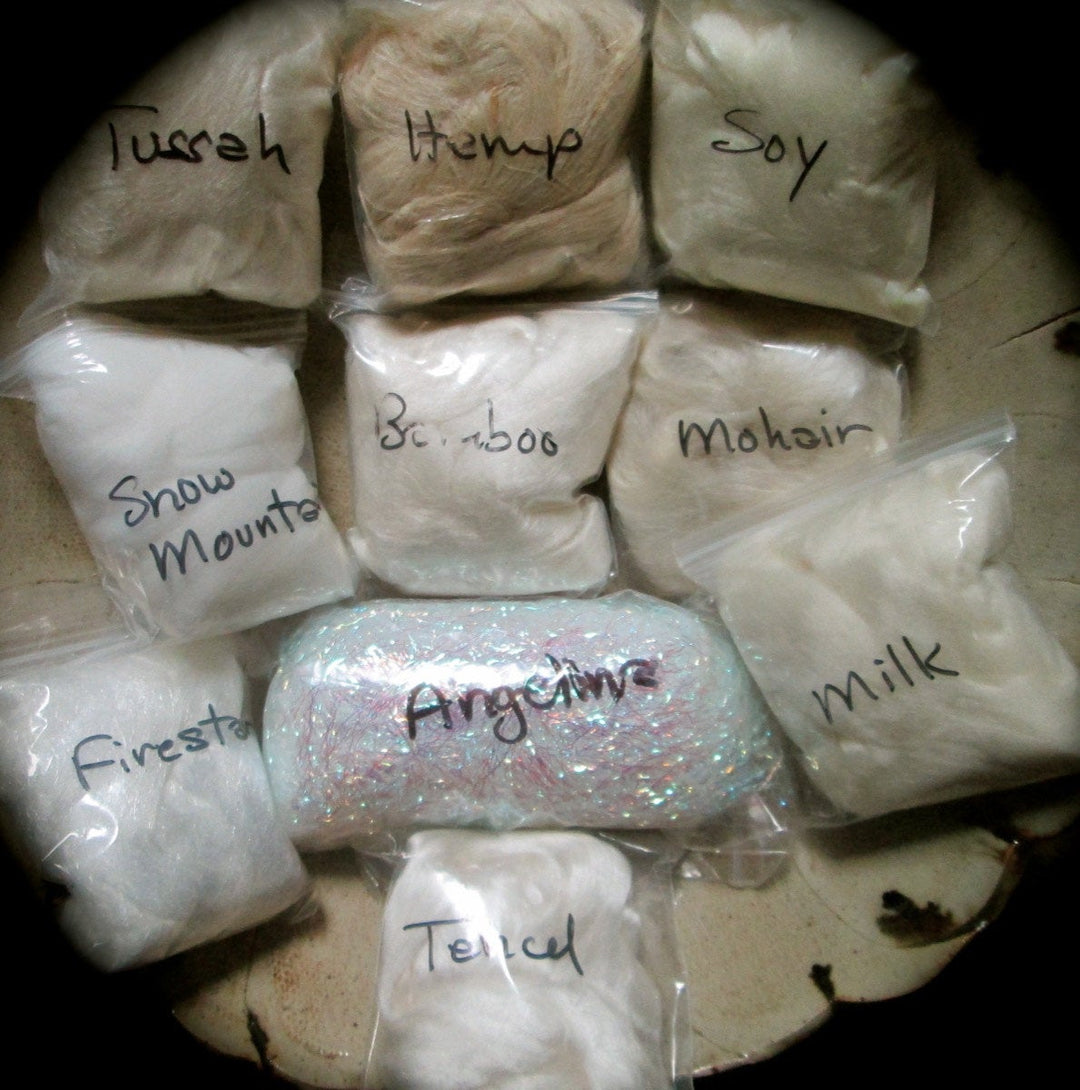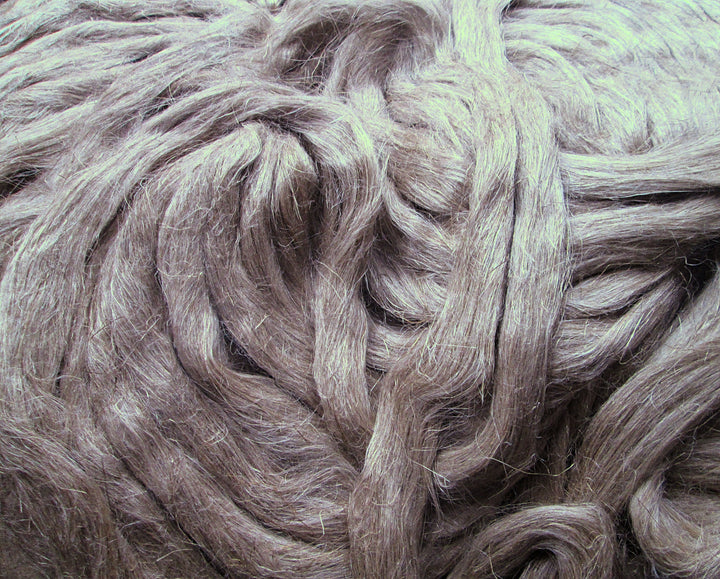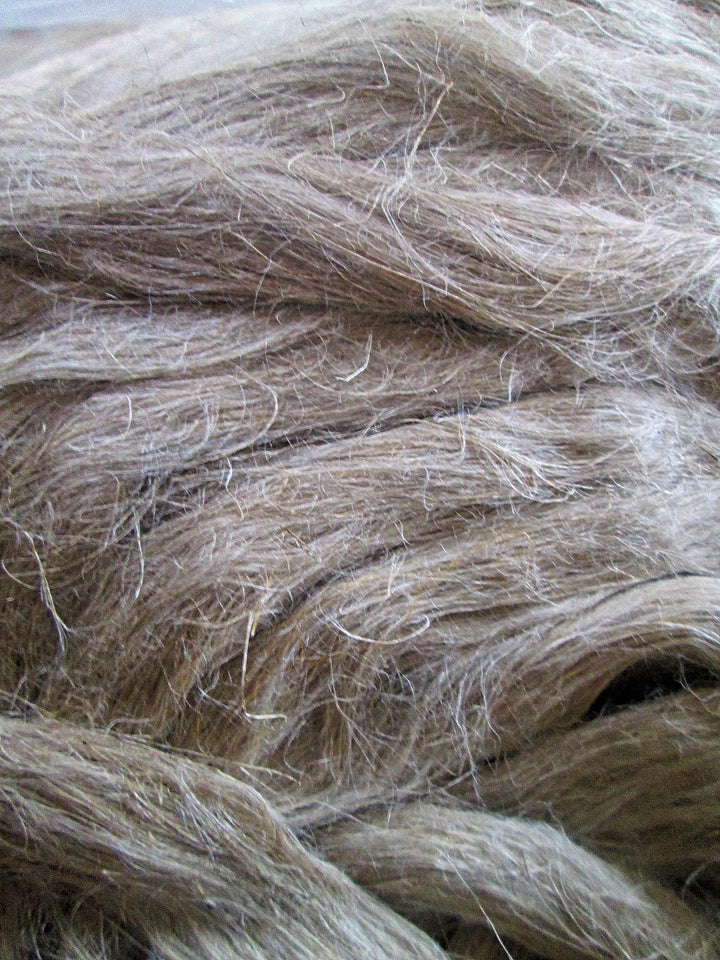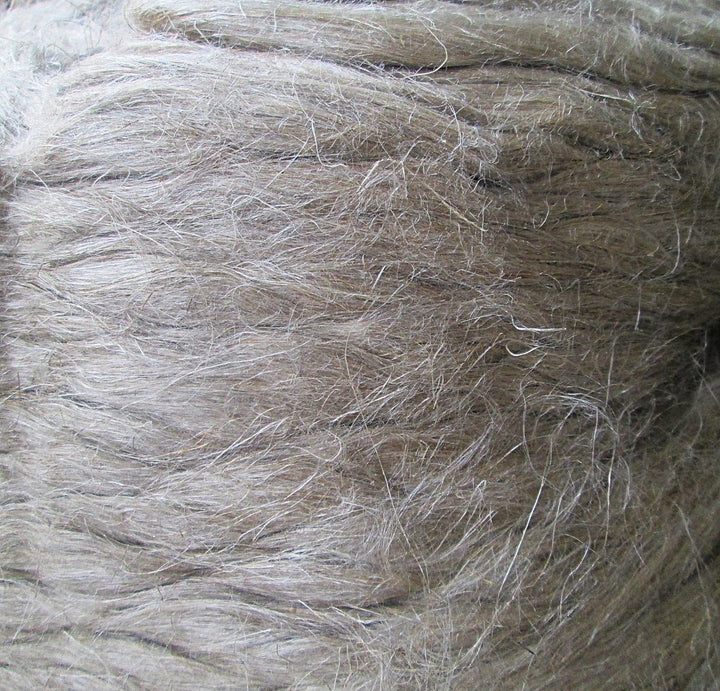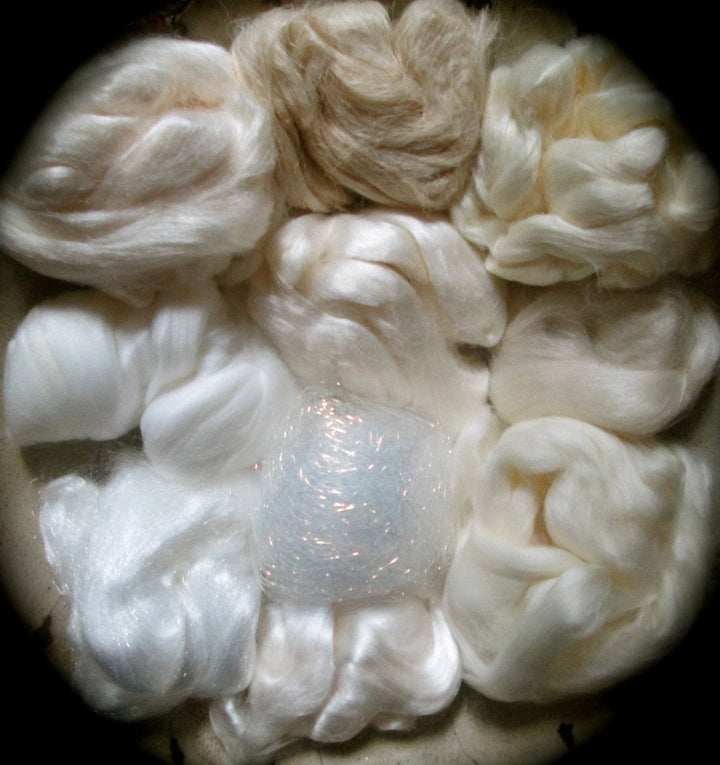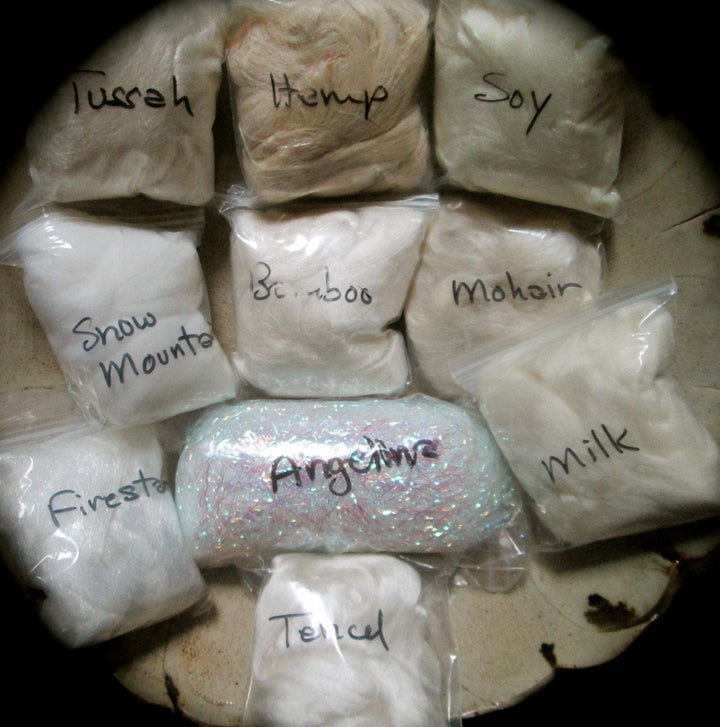Flax Linen Spinning Fiber Mixed Media
- In stock, ready to ship
- Backordered, shipping soon
Flax is one of the oldest types of flax fiber to be spun into cloth, its origins dating to 10,000 BC and even earlier. The Egyptians wrapped the bodies of their deceased with linen fabric made from flax fiber. In climates too cold for cotton growing, the flax plant can thrive on some pretty rugged growing conditions even with poor soil nutrients. While mostly thought of by modern Western cultures as a food product for its seed and oil, many are unaware that flax produces another useful product — flax fiber. Long strands of flax fiber are hidden within its stem, which through a little bit of magic (chemistry) and a bit of work (spinning), can be transformed into flax fabric.
It can be used by itself to create linen yarn or carded with any other wool for a textural effect for spinning and felting. Flax fiber becomes softer with use, making it excellent for handspun flax fabric. Today most flax fabric is produced in Eastern Europe. Environmentally, flax fabric is a good choice in textile fiber, as it provides a sustainable, chemical-free source of lightweight summer clothing. Because of negative environmental and labor issues with growing and processing cotton, flax fabric is quickly growing in popularity. When worn against skin, flax fabric wicks away sweat and reduces bacteria growth that can cause odor. It dries quickly and feels cooler than cotton in hot weather. This is flax fabric in its natural color; no bleaching or harsh treatments used.
Last couple pictures are of an Alternative Fiber Collection featuring flax fiber and other natural fibers. I offer these in several varieties – silks, vegan, exotics and other mixes.
Spinning Flax: Flax fiber is best spun with low twist with light tension. For a smoother yarn, you may wet your fingers while spinning flax fiber. The yarn can be used as a single ply or plied with itself or another flax fiber. The single ply also adds rustic texture when used as weft in handwoven flax fabric. Flax fiber is also used in needle felting, doll hair, and paper making. In textiles, flax fabric is most commonly used in undergarments, bed clothing, and table linens.
Dyeing Flax: Flax fiber and yarns can be dyed with natural plant dyes and mordants or other dyes suitable for cellulose fibers. Dyed flax fabric holds color beautifully and works well in many textile applications.
Priced in 1, 2 and 4 oz portions. Choose your weight from the drop-down box at upper right.
Want it fast? Priority Upgrade available at checkout for $4.50 (US Only). I ship every day but Sunday so your flax fiber order will go right out.


